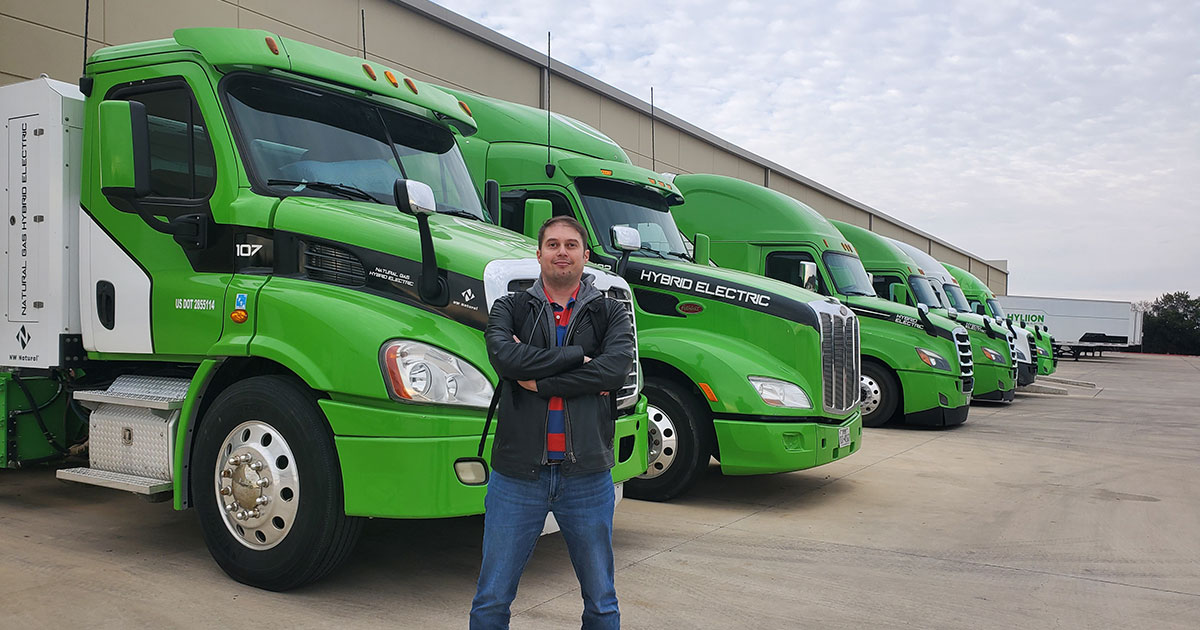Creating A Cleaner Truck
Otto Nitschmann (MEM '19) is fighting climate change and preventing further air pollution by helping create environmentally sustainable hybrid 18-wheelers at Hyliion.

Trucks are responsible for moving more than 70 percent of America's freight, according to the American Trucking Associations, a clear indicator of the role trucks play in the health of the economy. As for the health of the environment, that is an area where the trucking industry is still improving. The US Environmental Protection Agency reported that heavy-duty trucks are the transportation sector's largest contributor to mobile source emissions of nitrogen oxides.
Hyliion is working to fix the industry's environmental impact by delivering sustainable hybrid 18-wheelers that reduce or negate carbon emissions. The startup was created in 2015 to accelerate innovation and reduce costs in commercial transportation and logistics.
Otto Nitschmann (MEM '19) joined Hyliion in July 2021, and loves telling people about the work he and the company are doing.
"We take class 8 commercial vehicles and convert them into hybrid vehicles," Nitschmann said. "Most truck manufacturers are developing full battery electric vehicles (BEV). We are targeting the intermediate step between a diesel vehicle and a BEV."
Nitschmann's excitement is because the powertrains developed by Hyliion can have an immediate impact on the trucking industry. There are still questions, he said, of when the BEV will be commonplace.
“Many people think of electric cars and think that trucks will just be able to plug in while the driver is resting at night,” Nitschmann said. “The problem is that the infrastructure needed to support this is still a distant reality. The charging and the battery technology to transport heavy freight simply does not exist yet. For this reason, a solution that uses the available infrastructure will reduce fuel consumption."
The startup culture at Hyliion differs from past engineering roles Nitschmann previously held, but he's enjoyed the opportunity to be nimble and move from responsibility to responsibility. One day he may be doing diagnostic work, creating tools for the company’s field technicians to facilitate repairs for broken vehicles. The next day he may be on the quality side, keeping track and sharing relevant data about the vehicles delivered to customers.
He credited MEM with teaching the importance of flexibility and scalability.
“MEM taught me how to think strategically about my actions,” Nitschmann said. “When I am troubleshooting a vehicle, I am not only thinking about how to fix that one vehicle, but I think about the process I am using and how the next generation of vehicles and their troubleshooting can be improved.”
Nitschmann, who has an undergraduate degree in mechanical engineering, also thanked MEM for putting him in a position to grow professionally.
"(My undergrad) showed me how things physically work, but MEM showed me the forces that drive our engineering efforts," he said. "Understanding the mechanics of a corporation really opened the door for me to do a better job, even on the engineering tasks I was already doing."

